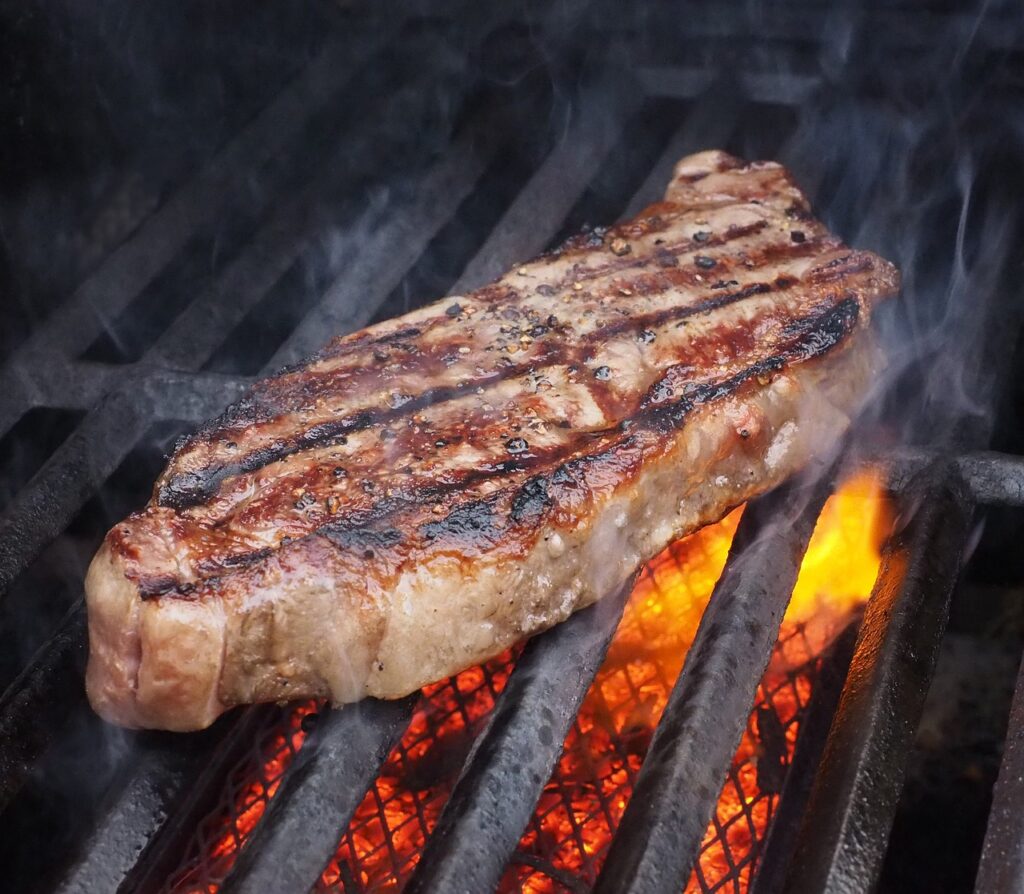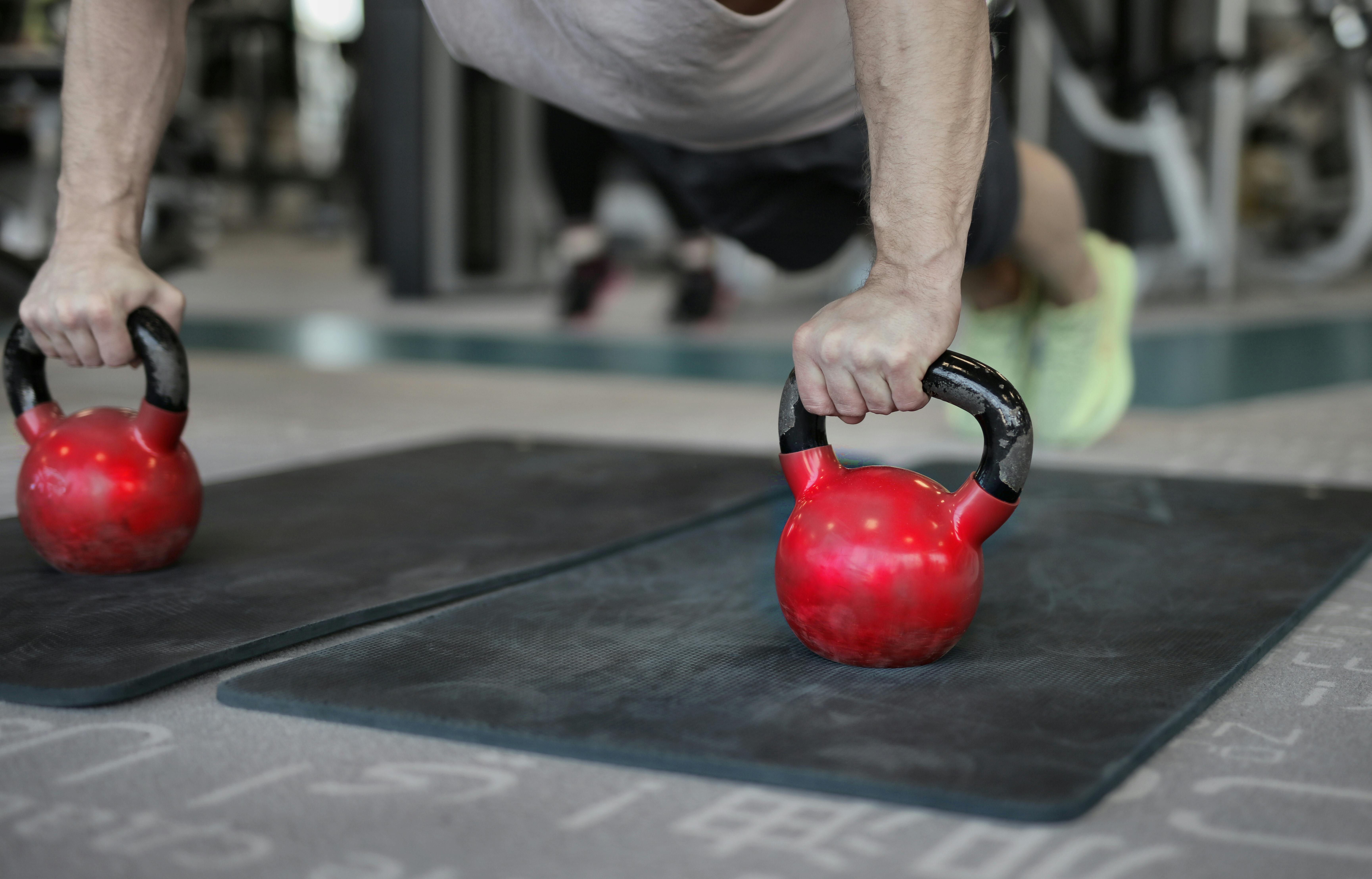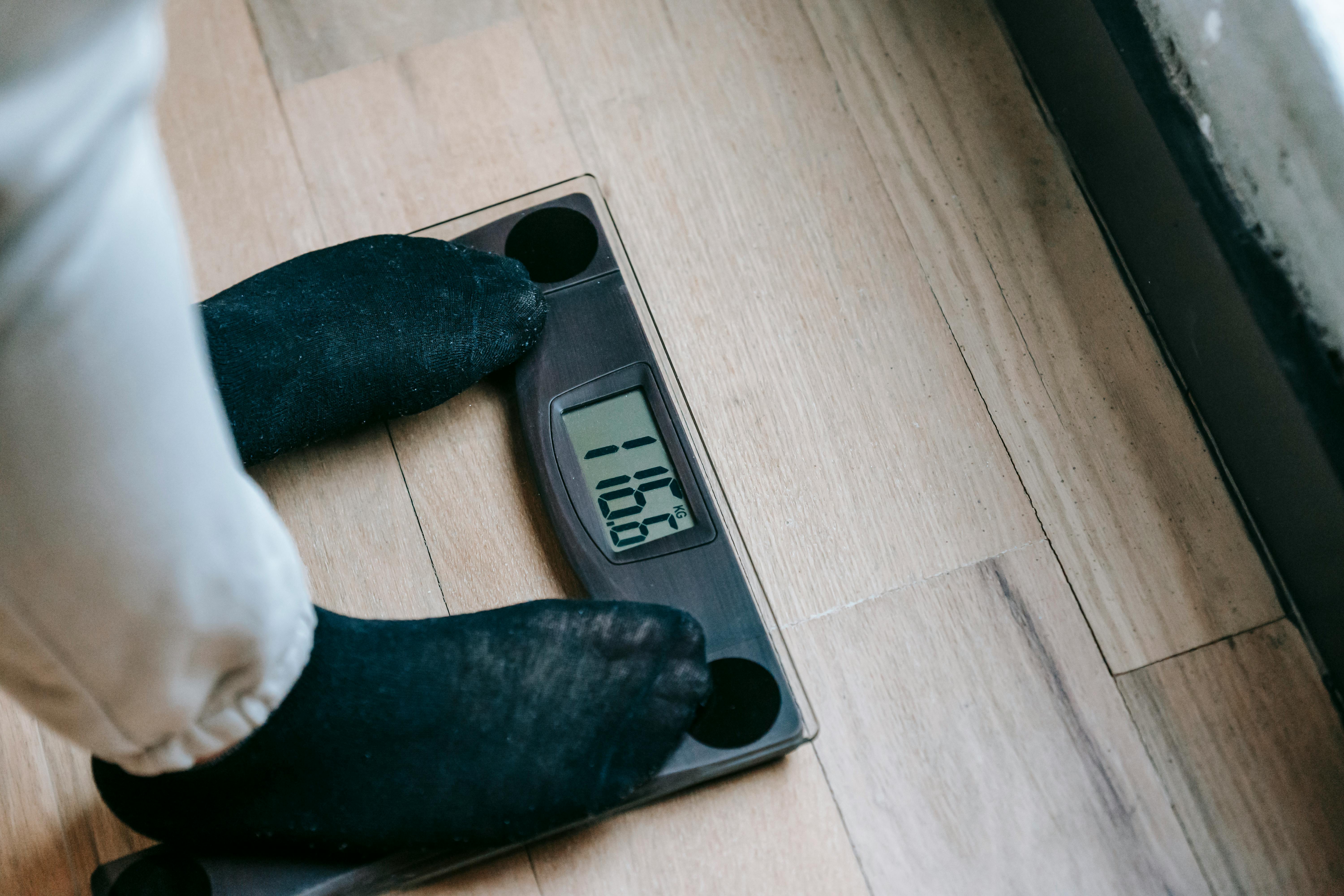
How much protein for muscle gain? Protein is the cornerstone of muscle development. It provides the essential amino acids needed for repair and growth, making it a crucial component of any muscle-building diet. When you exercise, your muscles undergo stress and damage, and protein is essential for repairing and rebuilding these tissues.
But just how much protein do you need to fuel your muscle gains? The general guideline for protein intake is around 0.8 grams per kilogram of body weight. However, this recommendation may not be sufficient for those looking to pack on significant muscle mass. Research suggests that a higher protein intake, ranging from 1.2 to 2.0 grams per kilogram of body weight, may be more effective in promoting muscle growth.
It’s important to note that individual protein requirements can vary depending on factors such as activity level, age, and overall health. Additionally, those who engage in intense resistance training or endurance exercise may have higher protein needs to support muscle repair and recovery.
To determine your specific protein needs, it’s best to consult with a registered dietitian or a sports nutritionist who can provide personalized recommendations based on your goals and circumstances. They will take into account factors such as body composition, training regimen, and dietary preferences to help you optimize your protein intake for muscle gain.
Protein For Muscle Gain. Daily Recommendation
When it comes to protein intake for muscle gain, there is no one-size-fits-all approach. The optimal amount of protein you need depends on various factors, including your body weight, activity level, and training goals. However, research suggests that a range of 1.2 to 2.0 grams of protein per kilogram of body weight per day is effective for muscle growth.
To put this into perspective, let’s take an example. If you weigh 70 kilograms, your protein intake should fall between 84 and 140 grams per day. This range provides your body with the necessary amino acids to support muscle repair and growth.
It’s worth noting that consuming protein beyond the upper limit of this range does not necessarily result in additional muscle gains. The body has a limit to how much protein it can utilize for muscle synthesis, and exceeding this limit may not provide any additional benefit. Instead, focus on spreading your protein intake evenly throughout the day, aiming for meals and snacks that contain a good balance of protein, carbohydrates, and healthy fats.
Protein For Muscle Gain. Factors That Affect Requirements
While the recommended protein intake range provides a general guideline for muscle gain, it’s important to consider individual factors that can influence your protein requirements. These factors include
Activity Level
The more physically active you are, the higher your protein needs may be. Active individuals engage in activities that place greater stress on their muscles, leading to increased muscle breakdown and the need for additional protein for repair and growth. If you engage in intense resistance training, endurance exercise, or have a physically demanding job, you may require more protein to support your muscle-building goals.
Age
As we age, our muscle protein synthesis response to protein intake decreases. This means that older individuals may need to consume more protein to achieve the same muscle-building effects as younger individuals. Research suggests that older adults may benefit from a protein intake of up to 2.2 grams per kilogram of body weight to counteract age-related muscle loss.
Overall Health
Certain medical conditions, such as kidney disease, may require individuals to limit their protein intake. If you have any underlying health conditions, it’s important to consult with a healthcare professional before making any significant changes to your diet, including increasing your protein intake for muscle gain.
Training Goals

The intensity and duration of your workouts can also affect your protein needs. If your primary goal is muscle gain, you may need to consume more protein compared to someone who is focused on weight loss or general fitness. Tailoring your protein intake to your specific training goals can help optimize your results.
Understanding these factors and how they can influence your protein requirements is crucial in determining the optimal amount of protein you need for muscle gain. By taking into account your unique circumstances, you can fine-tune your protein intake and maximize your muscle-building potential.
Protein Foods For Muscle Gain
Meeting your protein requirements doesn’t have to be a daunting task. There is a wide variety of delicious and nutritious foods that are rich in protein, making it easier than ever to fuel your muscle gains. Here are some excellent sources of protein to incorporate into your diet
Lean Meats
Lean meats such as chicken breast, turkey, and lean cuts of beef are excellent sources of high-quality protein. They are not only rich in essential amino acids but also provide important nutrients like iron, zinc, and vitamin B12. Opt for skinless poultry and trim any visible fat to keep your protein intake lean and healthy.
Fish and Seafood
Fish and seafood are not only packed with protein but also contain heart-healthy omega-3 fatty acids. Fatty fish like salmon, mackerel, and sardines are particularly beneficial due to their high omega-3 content. These fatty acids have been shown to reduce inflammation, promote muscle recovery, and support overall health.
Eggs
Eggs are a versatile and cost-effective protein source. They contain all nine essential amino acids and are rich in vitamins and minerals. Whether scrambled, poached, or hard-boiled, eggs make for a convenient and nutritious addition to any muscle-building diet.
Dairy Products
Dairy products like milk, yogurt, and cheese are not only excellent sources of protein but also provide essential nutrients like calcium and vitamin D. Greek yogurt, in particular, is a great choice as it contains more protein and less sugar compared to regular yogurt. Opt for low-fat or fat-free dairy products to keep your calorie intake in check.
Plant-Based Protein Sources
For those following a vegetarian or vegan diet, plant-based protein sources can be just as effective for muscle gain. Legumes such as lentils, chickpeas, and black beans, as well as tofu, tempeh, and seitan, are all rich in protein. Additionally, whole grains like quinoa and amaranth also contribute to your overall protein intake.
Incorporating these high protein foods into your meals and snacks can help you meet your daily protein requirements for muscle gain. Aim for a balanced diet that includes a variety of protein sources to ensure you’re getting all the essential amino acids your body needs.
Meal Timing and Protein for Muscle Gain
While meeting your daily protein requirements is crucial for muscle gain, how you time your protein intake can also play a role in optimizing muscle growth. Consuming protein-rich foods or supplements before and after your workouts can help maximize muscle protein synthesis (MPS), the process by which your body builds new muscle tissue.
Pre-Workout Protein For Muscle Gain
Consuming protein before your workout provides your body with the necessary amino acids to fuel muscle repair and growth. Aim to consume a protein-rich meal or snack about 1-2 hours before your workout to allow for proper digestion and absorption. This can help increase amino acid availability during your workout, enhancing muscle protein synthesis.
Post-Workout Protein For Muscle Gain
Immediately following your workout, your muscles are primed for protein synthesis. Consuming protein within 30 minutes to an hour after your workout can help initiate the muscle recovery process. Opt for fast-digesting protein sources such as whey protein powder, which is quickly absorbed by the body, or a combination of protein and carbohydrates to optimize recovery.
Protein For Muscle Gain .Distribution Throughout the Day
While pre- and post-workout protein intake is essential, it’s also important to distribute your protein intake evenly throughout the day. This ensures a constant supply of amino acids for muscle repair and growth. Aim to include a source of protein in each meal and snack, spacing them out every 3-4 hours.
By strategically timing your protein intake, you can provide your muscles with the necessary nutrients to optimize muscle growth and recovery. Experiment with different meal timings and protein sources to find a routine that works best for you and your training goals.
Protein Supplements for Muscle Gain

In addition to whole foods, protein supplements can be a convenient and effective way to meet your protein needs for muscle gain. They provide a concentrated source of protein and are easily digested, making them ideal for post-workout recovery or when whole food options are not readily available.
Whey Protein
Whey protein is one of the most popular and widely studied protein supplements. It’s derived from milk and is quickly absorbed by the body, making it an excellent choice for post-workout recovery. Whey protein is rich in essential amino acids, particularly leucine, which plays a crucial role in stimulating muscle protein synthesis.
Casein Protein
Unlike whey protein, casein protein is slow-digesting, providing a sustained release of amino acids into the bloodstream. This makes it an ideal choice for nighttime consumption or as a meal replacement when you need prolonged protein delivery. Casein protein can help prevent muscle breakdown and support muscle recovery during periods of fasting, such as sleep.
Plant-Based Protein
For those following a vegetarian or vegan diet, plant-based protein supplements are a great alternative to animal-derived options. Pea protein, brown rice protein, and hemp protein are all excellent sources of plant-based protein. Look for supplements that provide a complete amino acid profile and are free from artificial additives or fillers.
While protein supplements can be beneficial, they should not replace whole food sources entirely. Whole foods provide a wide range of nutrients, including vitamins, minerals, and fiber, which are essential for overall health. Use protein supplements as a convenient addition to your diet when needed, but aim to prioritize whole foods whenever possible.
Common Misconceptions About Protein For Muscle Gain
With so much information available, it’s easy to fall victim to common misconceptions about protein and muscle gain. Let’s debunk some of these myths and set the record straight
More Protein Equals More Muscle
While protein is essential for muscle growth, consuming excessive amounts beyond your body’s needs will not lead to additional muscle gains. The body has a limit to how much protein it can utilize for muscle synthesis, and exceeding this limit may not provide any additional benefits. Focus on consuming the recommended protein intake range and prioritize other aspects of your diet, such as overall calorie intake and nutrient timing.
Protein Only Comes from Animal Sources
Contrary to popular belief, protein is not exclusive to animal sources. Plant-based protein sources such as legumes, tofu, and quinoa can provide all the essential amino acids your body needs for muscle growth. By incorporating a variety of plant-based protein sources into your diet, you can meet your protein requirements while reaping the benefits of a plant-rich diet.
Protein Supplements Are Necessary for Muscle Gain
While protein supplements can be a convenient way to boost your protein intake, they are not necessary for muscle gain. Whole foods should always form the foundation of your diet, providing a wide range of nutrients in addition to protein. Supplements should be used to complement your diet when needed, but they should not replace whole food sources entirely.
By understanding these misconceptions and separating fact from fiction, you can make informed choices about your protein intake and optimize your muscle-building efforts.
Protein-Rich Recipes for Muscle Gain
Incorporating high-protein foods into your diet doesn’t have to be boring or repetitive. There are countless delicious recipes that can help you meet your protein requirements and satisfy your taste buds. Here are a few protein-rich recipes to inspire your muscle-building menu
Protein Pancakes
Start your day with a protein-packed twist on a breakfast classic. Combine protein powder, oats, egg whites, and a splash of milk to create a thick batter. Cook the batter on a non-stick pan, flipping when bubbles form on the surface. Serve with your favorite toppings such as berries, Greek yogurt, or nut butter for an extra protein boost.
Grilled Chicken Skewers
Fire up the grill and make these flavorful chicken skewers. Marinate chicken breast chunks in a mixture of olive oil, lemon juice, garlic, and your favorite herbs and spices. Thread the marinated chicken onto skewers and grill until cooked through. Serve with a side of grilled vegetables or a fresh salad for a complete, protein-packed meal.
Quinoa and Black Bean Salad
This refreshing salad is packed with plant-based protein and essential nutrients. Cook quinoa according to package instructions and let it cool. In a large bowl, combine cooked quinoa, black beans, cherry tomatoes, diced avocado, and chopped cilantro. Dress with a squeeze of lime juice, olive oil, and a sprinkle of salt and pepper. Toss well and enjoy as a side dish or a light meal.
These are just a few examples of the many protein-rich recipes you can experiment with to support your muscle-building goals. Get creative in the kitchen and explore different combinations of high-protein ingredients to keep your meals exciting and nutritious.
How Much Protein For Muscle Gain.Tracking and Progress

To ensure you’re meeting your protein requirements for muscle gain, it can be helpful to track your protein intake and monitor your progress. Here are some strategies to help you stay on top of your protein goals
Keep a Food Diary
Keeping a food diary can help you visualize your protein intake and identify any gaps in your diet. Use a smartphone app, a journal, or an online tool to record your meals and snacks, including the protein content of each item. This will give you a better understanding of your overall protein intake and help you make adjustments as needed.
Keep a Food Diary
Keeping a food diary can help you visualize your protein intake and identify any gaps in your diet. Use a smartphone app, a journal, or an online tool to record your meals and snacks, including the protein content of each item. This will give you a better understanding of your overall protein intake and help you make adjustments as needed.
Read Food Labels
Become familiar with reading food labels to determine the protein content of packaged foods. Look for products that provide a good source of protein per serving and consider the serving size when calculating your protein intake. Be mindful of added sugars and other unnecessary additives that may accompany the protein content.
Weigh and Measure Portions
To accurately track your protein intake, it’s important to weigh and measure your portions. Invest in a kitchen scale to ensure you’re consuming the recommended amount of protein per meal. Measuring cups and spoons can also be helpful for portioning out protein-rich foods and ingredients.
Monitor Your Progress
Alongside tracking your protein intake, it’s important to monitor your progress in the gym and beyond. Keep a workout journal to record your exercises, sets, and repetitions, and track your strength gains over time. Additionally, pay attention to changes in body